Super-Vegetables That Lower Blood Pressure and Purify Your Arteries
In today’s fast-paced world, high blood pressure and arterial health issues have become silent threats to millions.
Poor dietary choices, stress, and sedentary habits often pave the way for these cardiovascular challenges.
Yet, the solution may lie not in expensive treatments, but in the humble produce aisle.
Super-vegetables—nutrient-dense, naturally protective foods—hold the key to supporting heart health.
These powerful plants can help lower blood pressure and keep arteries clear, offering a simple, natural way to strengthen your cardiovascular system.
Discover how embracing these vegetables can transform your health from the inside out, making your heart stronger and your life fuller.
1. Spinach

Spinach is more than just a salad staple—it’s a nutritional powerhouse especially renowned for its high nitrate content.
These natural nitrates are transformed in the body into nitric oxide, a compound that helps relax and widen blood vessels.
This process, called vasodilation, increases blood flow and reduces pressure on arterial walls.
With more flexible blood vessels, your heart doesn’t have to work as hard to pump blood, supporting long-term cardiovascular health.
Numerous scientific studies have linked regular spinach consumption to improved blood pressure readings.
For example, research published in the journal Clinical Nutrition Research found that participants who ate daily servings of spinach experienced significant drops in both systolic and diastolic blood pressure.
Beyond nitrates, spinach delivers magnesium, potassium, and antioxidants—all important allies for arterial health.
These nutrients work in synergy to further ease tension within blood vessels and protect against oxidative damage.
Incorporating spinach into your daily meals can be a simple yet powerful way to support a healthier heart and cleaner arteries.
2. Kale

Kale is celebrated as a super-vegetable for good reason. Packed with antioxidants like quercetin and kaempferol, kale helps neutralize harmful free radicals that can otherwise damage blood vessels and promote plaque buildup. These antioxidants act as a natural shield for your arteries, reducing inflammation and supporting overall vascular health.
One of kale’s standout features is its impressive potassium content. Potassium is an essential mineral that helps counteract the negative effects of sodium, which is notorious for raising blood pressure. By balancing sodium levels, potassium eases tension in blood vessel walls, promoting smoother blood flow.
Additionally, the high fiber content in kale aids in lowering cholesterol and sweeping excess fats from the bloodstream. This fiber acts almost like a broom, helping to prevent the formation of arterial plaque and ensuring that blood can move freely through your arteries.
Adding kale to your diet—whether raw in salads, sautéed, or blended in smoothies—can be a tasty and effective strategy for arterial purification and blood pressure control.
3. Broccoli
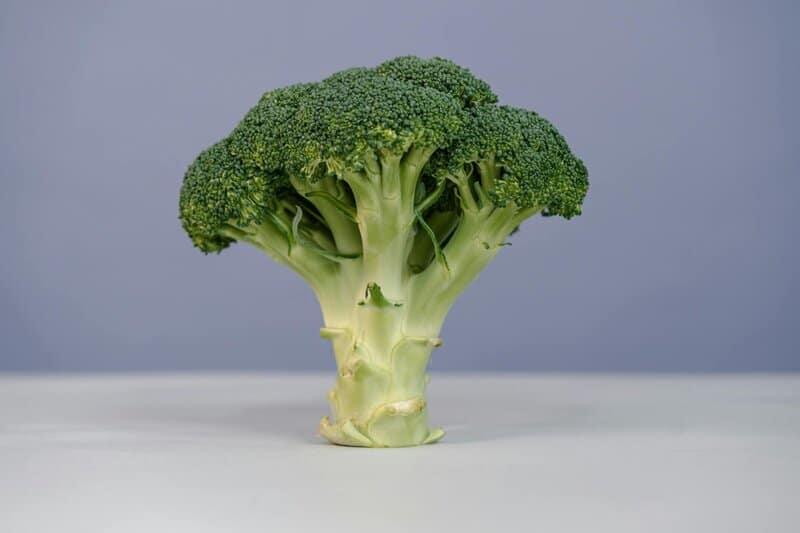
Broccoli stands out among cruciferous vegetables for its potent blend of nutrients that directly support arterial health. One of its most notable compounds is sulforaphane, a natural plant chemical known for its powerful antioxidant and anti-inflammatory properties. Sulforaphane activates enzymes that protect blood vessel linings from oxidative stress, helping to prevent the formation of dangerous arterial plaques.
In addition to sulforaphane, broccoli is rich in vitamin K, a nutrient essential for proper blood clotting and the prevention of calcium buildup in the arteries. This unique benefit sets broccoli apart from many other vegetables, as excessive arterial calcium is a key contributor to hardening of the arteries.
Compared to other cruciferous vegetables like cauliflower and Brussels sprouts, broccoli consistently offers higher levels of both sulforaphane and vitamin K, making it an exceptional choice for those looking to protect their cardiovascular system. Studies have shown that diets high in broccoli and similar vegetables are associated with improved arterial flexibility and a reduced risk of heart disease.
Enjoy broccoli steamed, roasted, or raw for optimal heart-protective effects.
4. Swiss Chard
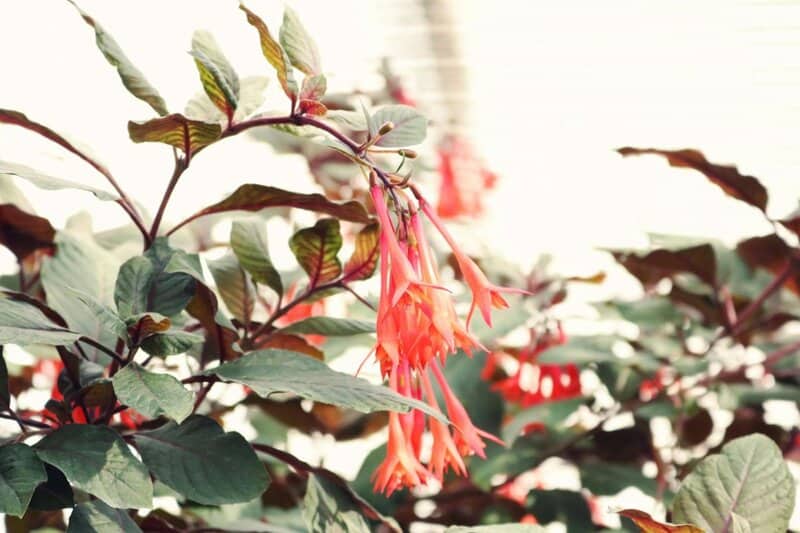
Swiss chard is a leafy green that’s often overlooked, yet it’s one of the most nutrient-dense vegetables for heart health. Its vibrant stems and leaves are packed with magnesium and potassium, two minerals renowned for their blood pressure-lowering abilities. Magnesium helps relax blood vessel walls, making it easier for your heart to pump blood, while potassium works to balance sodium levels, further easing pressure on your arteries.
What sets Swiss chard apart is its impressive array of phytonutrients, including betalains and flavonoids. These natural compounds offer antioxidant and anti-inflammatory benefits, helping protect the inner lining of your arteries from damage and reducing your risk of plaque buildup. The synergy between these phytonutrients and essential minerals makes Swiss chard a unique ally in the fight against high blood pressure and arterial stiffness.
Whether lightly sautéed or added raw to salads, Swiss chard can easily become a vibrant part of your daily routine, delivering powerful protection for your cardiovascular system.
5. Beets
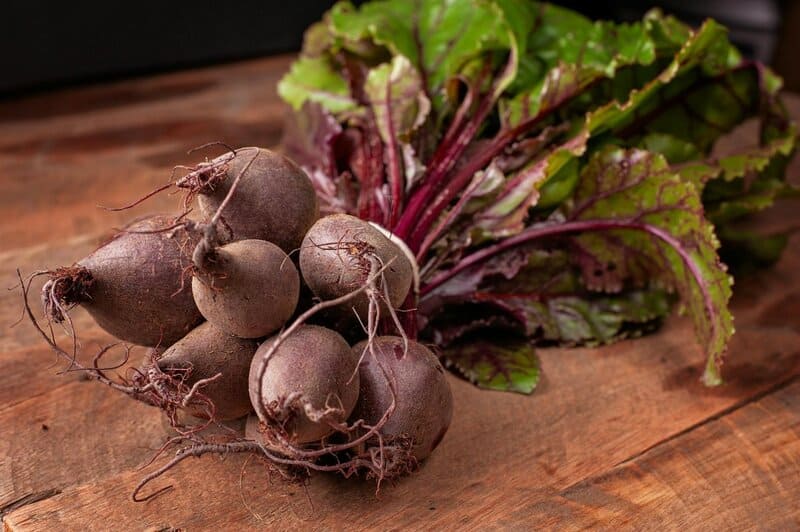
Beets are a vibrant root vegetable that has earned a reputation as a natural remedy for high blood pressure. Their secret lies in their exceptional nitrate content. Once consumed, these nitrates are converted by the body into nitric oxide, a molecule that plays a crucial role in relaxing and dilating blood vessels. This process leads to improved blood flow, reduced arterial stiffness, and ultimately, lower blood pressure.
Scientific research has placed beets in the spotlight for cardiovascular support. For instance, a study published in the journal Hypertension found that participants who drank beetroot juice experienced a significant reduction in both systolic and diastolic blood pressure within hours of consumption. The effect was particularly notable in individuals with unmanaged hypertension.
In addition to nitrates, beets are rich in antioxidants and phytonutrients that further protect the arteries from oxidative stress and inflammation.
Roasted, juiced, or grated raw, beets offer a delicious and effective addition to any heart-healthy diet.
6. Garlic

Garlic is more than a flavorful kitchen staple—it’s a proven super-vegetable for cardiovascular protection. Its most powerful compound, allicin, is released when garlic is chopped or crushed. Allicin acts as a natural vasodilator, relaxing blood vessel walls and enabling smoother, easier blood flow. This action helps to lower blood pressure and reduce the strain on your heart.
Garlic’s benefits extend beyond its vasodilatory effects. Research has shown that garlic can lower LDL cholesterol while raising protective HDL cholesterol, helping to prevent the buildup of arterial plaque. This dual effect not only keeps arteries clear but also reduces the risk of heart attacks and strokes.
Multiple clinical trials, including those featured in the Journal of Nutrition, have demonstrated garlic’s ability to significantly reduce both systolic and diastolic blood pressure in people with hypertension.
Add raw or lightly cooked garlic to your meals regularly to harness these remarkable cardiovascular benefits and give your arteries the support they deserve.
7. Arugula
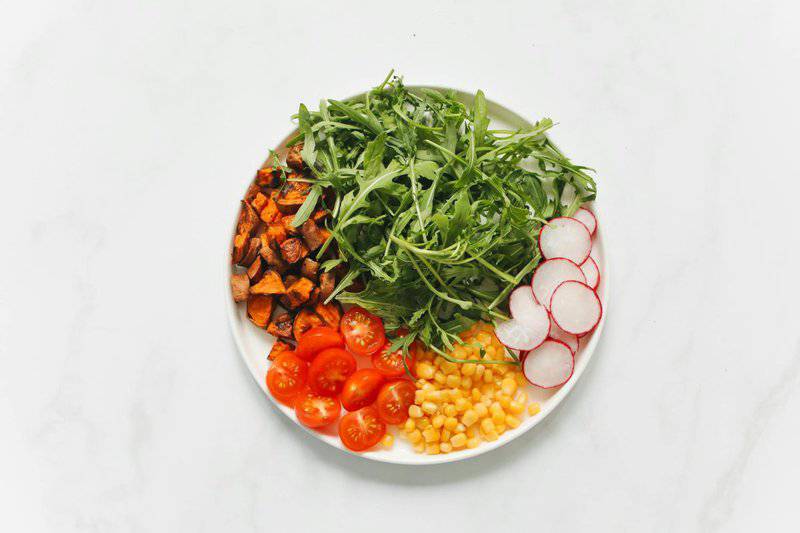
Arugula, sometimes called rocket, brings more than just a peppery kick to your plate—it’s a leafy green with impressive cardiovascular benefits. Like some of its super-vegetable peers, arugula is especially high in natural nitrates. When you eat arugula, your body converts these nitrates into nitric oxide, which helps blood vessels relax and expand, resulting in improved circulation and lower blood pressure.
What makes arugula particularly appealing is how quickly its effects can be felt. Studies have shown that even a single serving can produce measurable reductions in blood pressure within a matter of hours. This rapid response makes arugula an ideal choice for those seeking immediate as well as long-term heart health benefits.
Beyond its nitrate content, arugula also boasts a unique blend of antioxidants and minerals that support overall arterial health. Its bold, peppery flavor adds excitement to salads, sandwiches, and even smoothies, making it easy to incorporate into your daily routine.
Enjoy arugula raw for the fullest impact, letting its natural compounds work swiftly to support your cardiovascular system.
8. Carrots
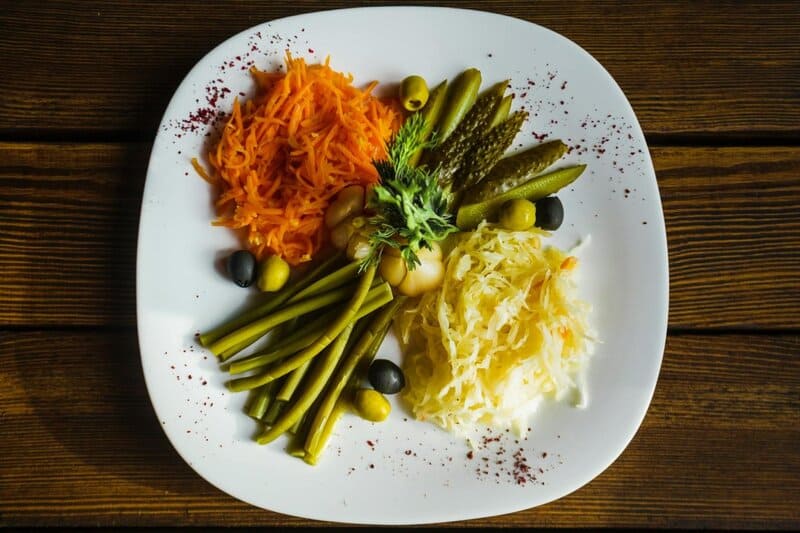
Carrots are famous for supporting vision, but their benefits for heart health are equally remarkable. Loaded with carotenoids—especially beta-carotene—carrots provide potent antioxidant protection against oxidative stress, which can damage arterial walls and accelerate the development of cardiovascular disease. These antioxidants help neutralize free radicals, reducing inflammation and supporting smoother blood flow through the arteries.
Carrots are also an excellent source of dietary fiber. Fiber works to lower cholesterol by binding to it in the digestive tract and helping remove it from the body. This process can prevent cholesterol from accumulating in the arteries, thereby reducing the risk of plaque formation and blockages.
Compared to many other root vegetables, carrots deliver a unique combination of antioxidants and soluble fiber, making them particularly effective for overall cardiovascular protection. Studies have shown that regular carrot consumption is linked to lower cholesterol levels and improved blood vessel function.
Enjoy carrots raw, cooked, or juiced to maximize their heart-healthy benefits and keep your arteries young and resilient.
9. Red Bell Peppers

Red bell peppers are among the most colorful and nutrient-dense vegetables you can add to your diet, especially for supporting cardiovascular health. One of their standout features is their exceptionally high vitamin C content—significantly more than many other vegetables. Vitamin C acts as a powerful antioxidant, protecting blood vessels from oxidative stress and helping to maintain the integrity of arterial walls.
In addition to vitamin C, red bell peppers are rich in potassium, a mineral essential for keeping blood pressure in check. Potassium helps counteract the effects of sodium, relaxing blood vessels and supporting arterial flexibility. This dual action works to reduce the risk of hypertension and arterial stiffness, both of which are major contributors to heart disease.
The unique combination of antioxidants and minerals in red bell peppers makes them particularly effective for promoting supple, resilient arteries. Regular consumption can help you maintain healthy blood flow and lower your long-term cardiovascular risk.
Add them raw to salads, stir-fries, or as a snack to harness their heart-protective benefits.
10. Asparagus
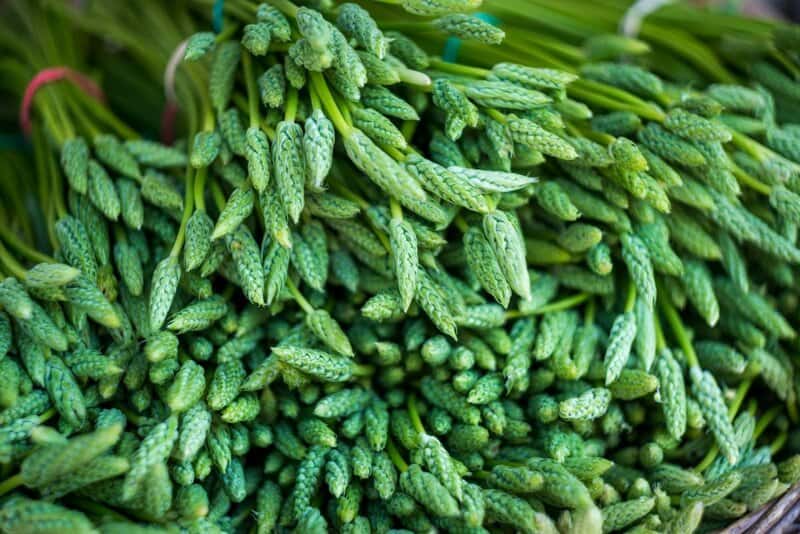
Asparagus is a springtime delicacy that packs a powerful punch for arterial and blood pressure health. One of its key compounds, asparagine, acts as a natural diuretic. By encouraging the kidneys to expel excess sodium and fluid, asparagus helps lower blood volume and, consequently, blood pressure. This gentle diuretic effect can be especially beneficial for individuals prone to hypertension or fluid retention.
Asparagus is also rich in folate, a B-vitamin that plays an important role in reducing levels of homocysteine, an amino acid linked to arterial damage and increased cardiovascular risk. Keeping homocysteine levels in check supports smoother, healthier blood vessels and better overall heart function.
Additionally, asparagus provides antioxidants and anti-inflammatory compounds that further protect the inner lining of arteries from damage. These nutrients work together to improve blood vessel flexibility and promote optimal circulation.
Enjoy asparagus roasted, steamed, or grilled to take full advantage of its unique cardiovascular benefits and support balanced blood pressure.
11. Brussels Sprouts
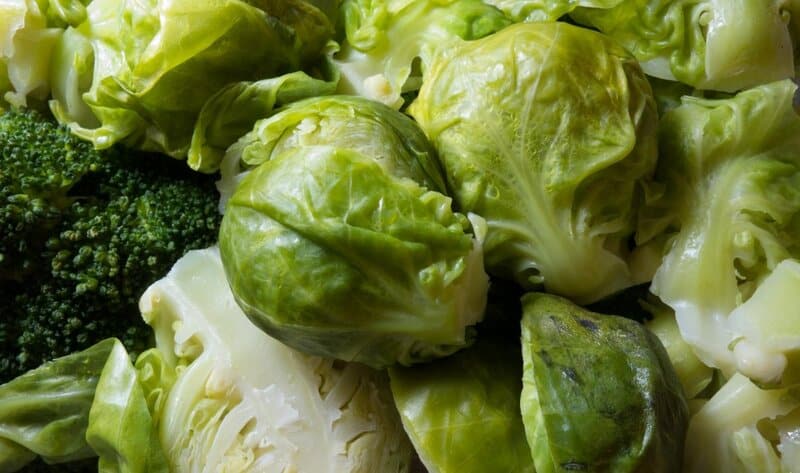
Brussels sprouts are small in size but mighty in their impact on heart health. Packed with antioxidants such as vitamin C and kaempferol, these cruciferous vegetables help combat oxidative stress and reduce inflammation within the arteries. This anti-inflammatory effect is crucial for maintaining smooth, healthy blood vessel walls and preventing the development of arterial plaque.
Another standout benefit of Brussels sprouts is their high fiber content. Fiber not only aids in lowering cholesterol but also supports better digestion and the removal of toxins that can negatively impact cardiovascular health. This combination helps keep arteries clear, flexible, and functioning at their best.
Brussels sprouts are also an excellent source of vitamin K, which is essential for regulating blood clotting and preventing the calcification, or hardening, of arteries. Adequate vitamin K intake has been linked to a reduced risk of arterial stiffness and cardiovascular disease.
Roast, steam, or sauté Brussels sprouts to unlock their full flavor and heart-protective power in your daily diet.
12. Tomatoes

Tomatoes are as versatile as they are powerful for heart health, thanks largely to their rich content of lycopene. Lycopene is a potent antioxidant that has been shown to reduce arterial stiffness and improve the flexibility of blood vessels. By neutralizing free radicals, lycopene helps protect arterial walls from damage, supporting smoother blood flow and reducing the risk of cardiovascular disease.
Tomatoes are also a natural source of potassium, which plays a critical role in balancing sodium levels and regulating blood pressure. This mineral further assists in keeping arteries relaxed and resilient, contributing to overall cardiovascular wellness.
Scientific studies, including those published in the American Journal of Clinical Nutrition, have found that diets rich in tomatoes and tomato-based products are linked to lower blood pressure and reduced arterial stiffness. Regular consumption has also been associated with a lower risk of heart attack and stroke.
Enjoy tomatoes fresh, cooked, or as part of sauces and soups to maximize their artery-protective effects.
13. Celery

Celery is often underestimated, but its unique nutritional profile makes it a stand-out super-vegetable for cardiovascular health. One of its key compounds, phthalides, has a remarkable ability to relax the smooth muscles in artery walls. This natural vasodilation effect helps blood flow more easily, lowering the pressure on your arteries and supporting optimal circulation.
Celery also offers a distinctive sodium-potassium balance. While it contains a modest amount of natural sodium, it’s offset by a high potassium content, making celery a safe and effective choice for those watching their blood pressure. The potassium works in harmony with the phthalides to further reduce arterial tension and keep your cardiovascular system in check.
Research has shown that just a few stalks of celery per day can have a noticeable impact on blood pressure, particularly in individuals sensitive to dietary sodium. The crunchy, hydrating nature of celery makes it a perfect snack for heart health.
Enjoy celery raw, in salads, or added to soups and smoothies for a crisp, heart-friendly boost.
14. Sweet Potatoes

Sweet potatoes are more than a comforting side dish—they’re a nutritional treasure for cardiovascular wellness. These vibrant tubers are especially rich in potassium, a mineral vital for helping the body excrete excess sodium and maintain balanced blood pressure. Potassium’s role in easing tension within blood vessel walls makes sweet potatoes a smart addition to any heart-friendly diet.
Sweet potatoes also deliver a powerful dose of fiber, which aids in lowering cholesterol by binding to it in the digestive tract and promoting its removal from the body. This process helps keep arteries clear and prevents the buildup of plaque that can lead to hypertension and heart disease.
In addition, sweet potatoes are loaded with antioxidants like beta-carotene, which combat inflammation and oxidative stress—two factors known to damage arteries and elevate blood pressure. Together, these nutrients create a synergistic effect that supports smooth, healthy blood flow.
Enjoy sweet potatoes baked, roasted, or mashed for a naturally sweet and heart-protective meal component.
15. Bok Choy
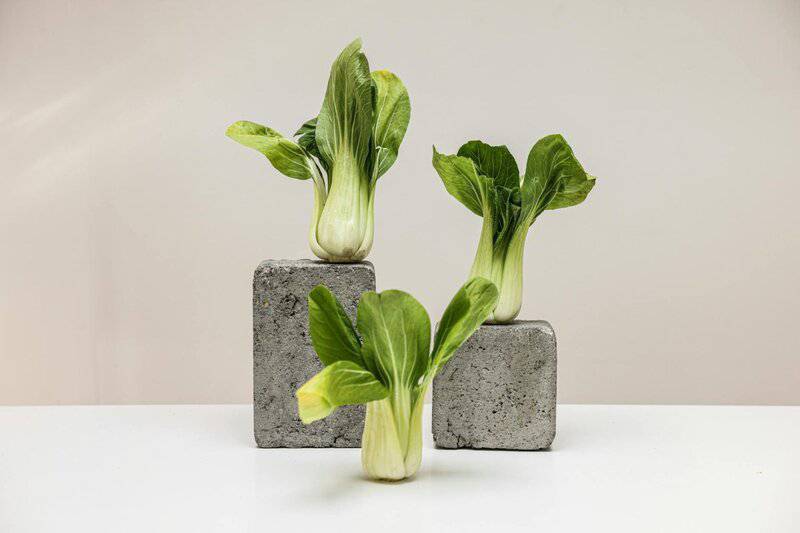
Bok choy, a staple in Asian cuisine, is a tender, leafy green that packs a remarkable nutritional punch for cardiovascular health. It is especially high in calcium and magnesium, two essential minerals that play a crucial role in maintaining normal blood pressure and supporting the contraction and relaxation of blood vessel walls. These minerals work together to keep arteries supple and responsive, reducing the risk of hypertension.
Unlike many other greens, bok choy also contains a small but significant amount of plant-based omega-3 fatty acids. These healthy fats have been linked to lowered inflammation and improved arterial flexibility, offering additional protection for your heart. When compared to other Asian greens such as napa cabbage or Chinese broccoli, bok choy stands out for its balanced mix of minerals and beneficial fats.
Its mild flavor and crisp texture make bok choy an easy addition to stir-fries, soups, and salads, providing both culinary versatility and heart health benefits.
Explore bok choy alongside other leafy greens to add variety and heart-nourishing nutrients to your meals.
16. Cabbage

Cabbage is a humble yet powerful super-vegetable, widely enjoyed across the globe for its versatility and impressive health benefits. One of its standout features is its high content of anthocyanins—the plant pigments that give red and purple cabbage their vibrant color. Anthocyanins are potent antioxidants known to reduce inflammation and protect arterial walls from oxidative damage, which can otherwise lead to the hardening and narrowing of arteries.
Cabbage is also an excellent source of soluble fiber, a type of fiber that helps lower cholesterol by binding with it in the digestive tract and aiding its removal from the body. This process supports the cleansing of arteries and reduces the risk of plaque buildup, promoting smoother blood flow and healthier cardiovascular function.
Whether you prefer it raw in slaws, fermented as sauerkraut, or cooked in soups and stir-fries, cabbage offers an easy way to support cholesterol reduction and arterial purification.
Make cabbage a regular part of your diet to enjoy both its taste and its heart-protective properties.
17. Avocado

Avocado is often celebrated as a superfood, and its benefits for artery health are truly outstanding. This creamy fruit is loaded with heart-healthy monounsaturated fats, which have been shown to lower LDL (bad) cholesterol while preserving or even boosting HDL (good) cholesterol. By improving your cholesterol profile, avocado helps prevent the buildup of plaque in the arteries and supports smooth, unobstructed blood flow.
Avocado also boasts a generous amount of potassium, rivaling even bananas in this vital mineral. Potassium is essential for regulating blood pressure and reducing tension in blood vessel walls. Combined with its high fiber content, avocado supports both cholesterol reduction and digestive health, offering a triple benefit for cardiovascular wellness.
When compared to other fruits and vegetables, avocado stands out for its unique blend of healthy fats, fiber, and minerals. Few plant foods pack so much arterial support into such a versatile package.
Add avocado to salads, toast, or smoothies to take advantage of its remarkable heart-protective properties.
18. Onions

Onions are a kitchen classic, but their benefits for arterial health go far beyond flavor. Their star nutrient is quercetin, a powerful antioxidant flavonoid that delivers significant anti-inflammatory effects. Quercetin helps reduce inflammation in blood vessels, preventing the oxidative stress and damage that can lead to arterial stiffness and high blood pressure.
Multiple research studies have linked onion-rich diets to lower blood pressure and improved cardiovascular function. For example, findings published in the journal Nutrition showed that participants who consumed onions regularly experienced notable reductions in both systolic and diastolic blood pressure. The study also highlighted that the effect is most pronounced when onions are consumed raw or lightly cooked, maximizing quercetin availability.
Onions also contain prebiotic fibers, which help support healthy gut bacteria and further reduce inflammation throughout the body—another essential factor in arterial health.
Enjoy onions raw in salads, lightly sautéed, or added to soups to unlock their full heart-protective potential.
19. Artichokes

Artichokes are not only a gourmet delight but also a potent ally for cardiovascular wellness. They are especially rich in cynarin, a unique phytonutrient that supports liver health and stimulates bile production. This process helps the body more efficiently break down and eliminate cholesterol, directly contributing to lower cholesterol levels and cleaner arteries.
Artichokes are also an excellent source of soluble fiber, which binds with cholesterol in the digestive tract and aids in its removal from the body. This “cleansing” action helps prevent cholesterol from accumulating on arterial walls, reducing the risk of plaque formation and ensuring blood flows smoothly through the vessels.
Studies have shown that regular consumption of artichokes or artichoke extract is linked to improved cholesterol profiles and better overall heart health. The vegetable’s antioxidants further protect arterial walls from oxidative damage, amplifying its artery-cleansing effects.
Enjoy artichokes steamed, grilled, or in dips to make the most of their heart-loving properties.
20. Eggplant
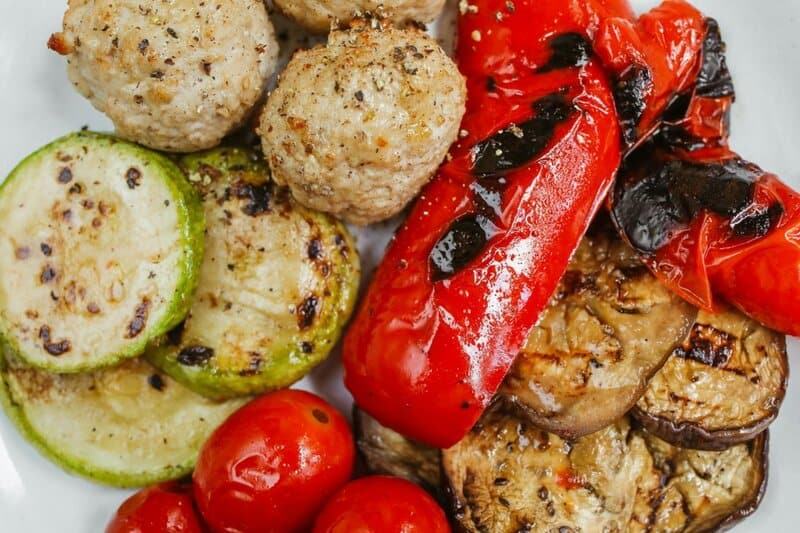
Eggplant, with its deep purple skin and tender flesh, is a nutritional gem for those seeking to protect their arteries. One of its standout compounds is nasunin, a potent antioxidant found in the skin of eggplant. Nasunin is known for its ability to neutralize free radicals, thereby reducing oxidative stress that can otherwise damage blood vessel walls and accelerate arterial aging.
Eggplant also contains chlorogenic acid, another powerful antioxidant that has been shown to lower LDL cholesterol and inhibit the formation of arterial plaque. By reducing cholesterol oxidation and preventing plaque buildup, chlorogenic acid helps maintain open, flexible arteries and supports healthy blood flow.
Research has linked regular eggplant consumption with improved lipid profiles and decreased inflammation—both important for cardiovascular health. The combination of nasunin and chlorogenic acid creates a synergistic effect, offering comprehensive protection for your arteries.
Enjoy eggplant grilled, roasted, or in Mediterranean dishes to maximize its heart-protective benefits and add variety to your diet.
21. Green Beans
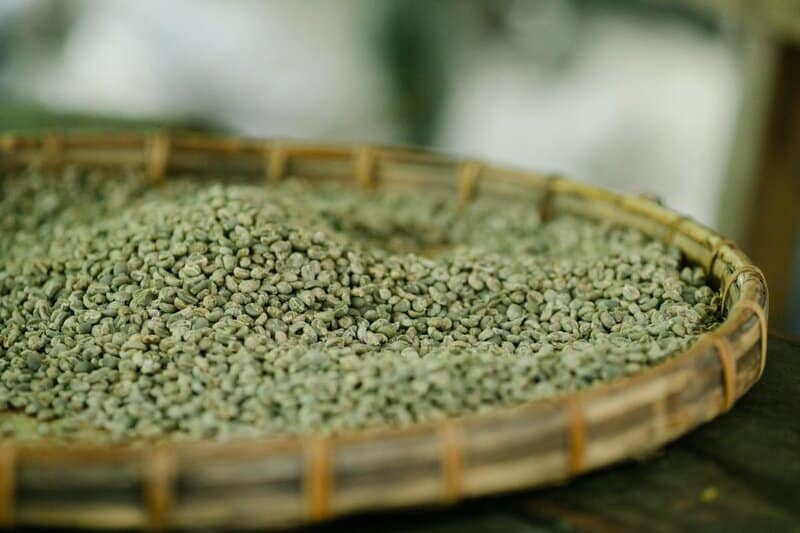
Green beans, also known as string beans or snap beans, are a versatile and nourishing addition to any heart-healthy diet. They are especially valued for their generous fiber content, which plays a crucial role in lowering cholesterol and promoting smooth, unobstructed blood flow. The soluble fiber in green beans helps bind excess cholesterol in the digestive tract, supporting arterial health and reducing the risk of plaque buildup.
Another notable benefit is their high potassium content. Potassium is essential for balancing sodium in the body, relaxing blood vessel walls, and regulating blood pressure. Green beans provide a steady supply of this important mineral, making them valuable for those aiming to manage hypertension naturally.
Additionally, green beans have a mild diuretic effect, helping your body eliminate excess sodium and fluid. This gentle action reduces blood volume and pressure, further supporting cardiovascular wellness.
Enjoy green beans steamed, sautéed, or in salads for a crisp, heart-smart boost to your meals.
22. Radishes
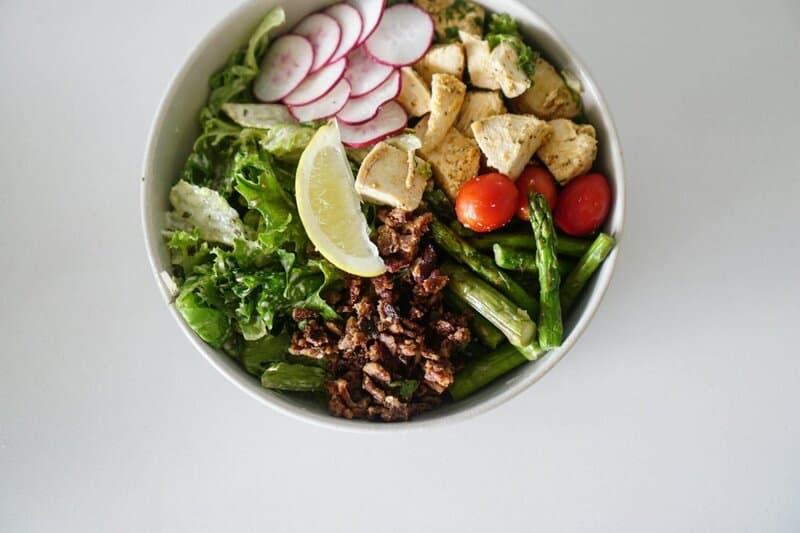
Radishes may be small, but they pack a vibrant punch when it comes to supporting cardiovascular health. One of their key features is their abundance of natural nitrates, which the body quickly converts into nitric oxide. This molecule plays a vital role in promoting arterial dilation, allowing blood vessels to relax and widen for improved blood flow and lower blood pressure.
In addition to nitrates, radishes are loaded with antioxidants such as vitamin C and various phytonutrients. These compounds help neutralize free radicals, reducing inflammation and oxidative stress within artery walls. The combined effect results in a rapid enhancement of vascular flexibility and circulatory efficiency.
What sets radishes apart is how swiftly their benefits can be felt—consuming them can have a quick, positive impact on blood vessel function, making them a smart choice for those seeking immediate cardiovascular support.
Enjoy radishes raw in salads, as a crunchy snack, or lightly pickled to harness their quick-acting, heart-healthy properties.
23. Pumpkin
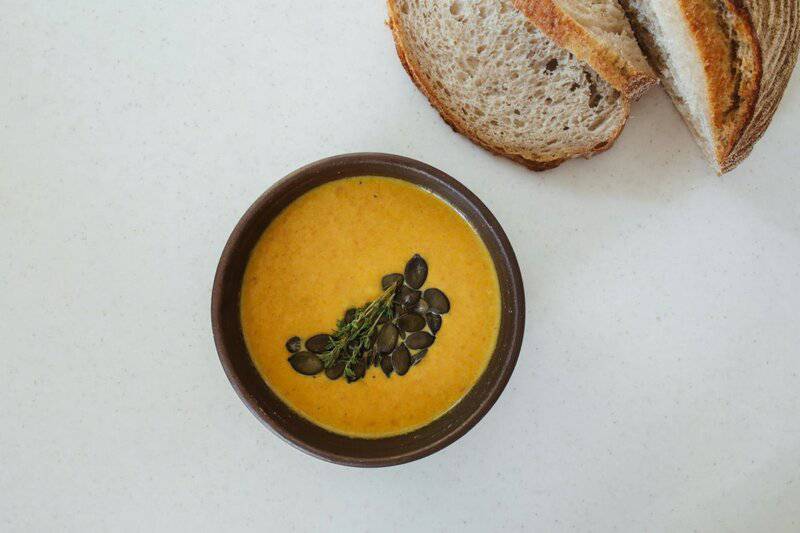
Pumpkin is more than just a seasonal treat—it’s a nutritional powerhouse with powerful benefits for your heart and arteries. One of its key nutrients is beta-carotene, a potent antioxidant that gives pumpkin its vibrant orange color. Beta-carotene helps protect blood vessel walls from oxidative stress, supporting long-term arterial health and reducing the risk of cardiovascular disease.
Pumpkin is also an excellent source of potassium, a mineral that plays a vital role in blood pressure regulation. By balancing sodium levels and relaxing blood vessels, potassium helps maintain steady, healthy blood pressure. In addition, pumpkin’s high fiber content aids in lowering cholesterol by binding with it in the digestive tract and promoting its removal from the body.
The combined effects of beta-carotene, potassium, and fiber make pumpkin particularly effective in reducing both blood pressure and cholesterol—two major risk factors for heart disease.
Enjoy pumpkin roasted, pureed in soups, or baked into healthy recipes to make the most of its heart-protective qualities year-round.
24. Okra
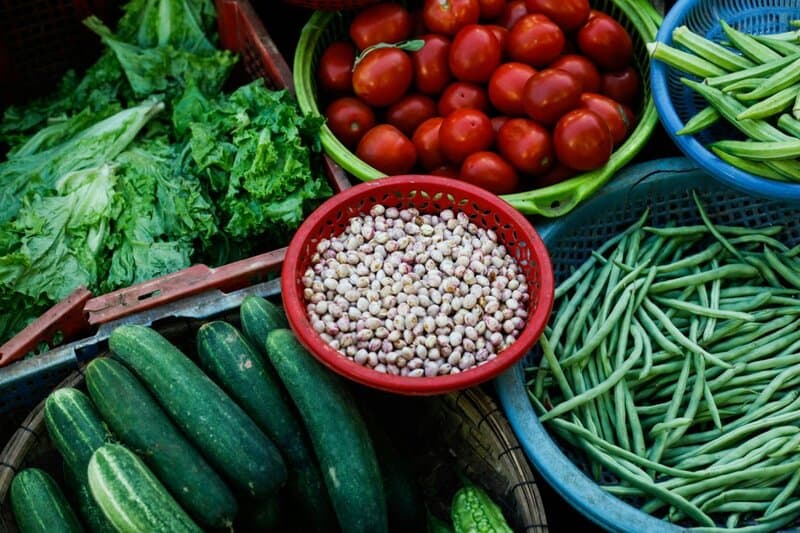
Okra, sometimes called “lady’s finger,” is a unique vegetable with remarkable benefits for arterial health. Its most distinctive feature is its rich mucilage—a gel-like substance that gives okra its signature texture. This mucilage is packed with soluble fiber, which plays a vital role in binding cholesterol in the digestive tract and facilitating its removal from the body.
The cholesterol-lowering effects of okra’s mucilage and fiber are supported by research showing significant reductions in LDL cholesterol among those who include okra regularly in their diet. By helping to keep cholesterol levels in check, okra reduces the risk of plaque buildup and ensures that arteries remain clear and flexible for optimal blood flow.
Beyond fiber, okra is rich in antioxidants and vitamins that further support the health of blood vessels, combating inflammation and oxidative stress. Its mild flavor and tender texture make it a versatile addition to soups, stews, and stir-fries.
Add okra to your meals for a delicious, heart-smart way to promote arterial health and lower cholesterol naturally.
25. Edamame

Edamame, or young soybeans, are a delicious and nourishing snack that offers a multifaceted approach to heart and vascular health. One of their most notable qualities is their high content of plant protein, which supports muscle maintenance—including the all-important heart muscle—while providing a satiating, low-cholesterol alternative to animal proteins.
Edamame are also rich in isoflavones, a group of phytoestrogens that have been shown to improve blood vessel function, reduce arterial stiffness, and lower blood pressure. These plant compounds have antioxidant properties that help combat inflammation and oxidative damage inside blood vessels, supporting long-term cardiovascular wellness.
In addition, edamame supplies a hearty dose of fiber, which aids in cholesterol management and promotes smooth, efficient blood flow by keeping arteries clear. This combination of protein, isoflavones, and fiber makes edamame stand out among other legumes and vegetables for heart health.
Enjoy edamame steamed and lightly salted, tossed in salads, or added to stir-fries for a tasty, heart-friendly boost.
26. Watercress
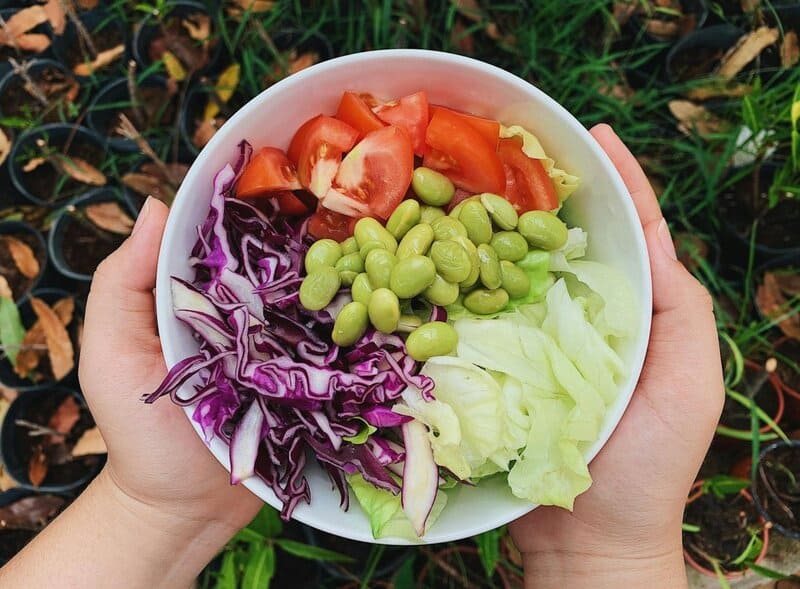
Watercress is a peppery, nutrient-dense leafy green that’s gaining recognition for its powerful cardiovascular benefits. One of its key nutrients is vitamin K, which plays an essential role in blood clotting and helps prevent the calcification of arteries, ensuring they remain flexible and healthy. Regular intake of vitamin K-rich foods like watercress has been linked to better arterial elasticity and a reduced risk of arterial stiffness.
Watercress is also naturally high in nitrates, which the body converts into nitric oxide. This process encourages blood vessel dilation, promotes improved circulation, and helps lower blood pressure. Additionally, watercress is packed with antioxidants such as vitamin C, beta-carotene, and flavonoids. These compounds work to combat oxidative stress and inflammation, offering further protection to the delicate lining of blood vessels.
Compared to many other leafy greens, watercress delivers a particularly potent combination of nutrients for arterial health.
Enjoy watercress raw in salads, sandwiches, or as a garnish to fully benefit from its heart-supportive properties.
27. Parsley
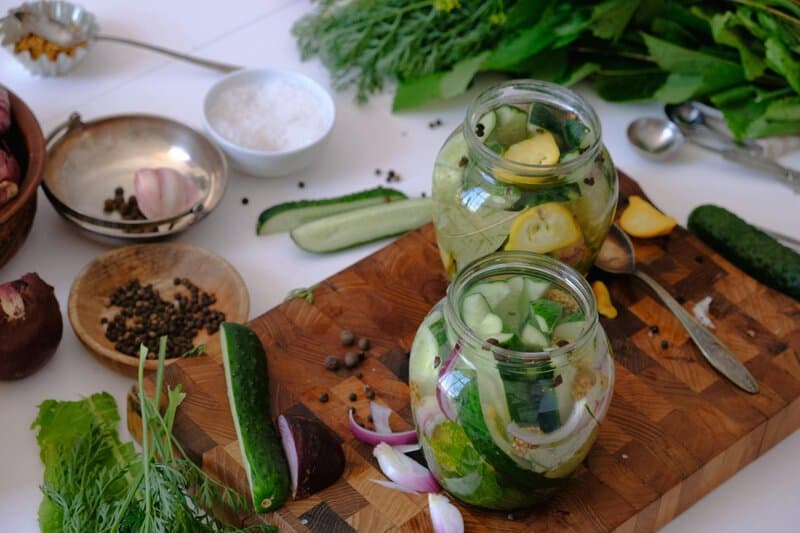
Parsley is often regarded as a simple garnish, but its nutritional profile makes it a true super-vegetable for cardiovascular health. Rich in vitamin C, parsley acts as a potent antioxidant, protecting blood vessel walls from oxidative stress and supporting overall vascular integrity. This vitamin also helps boost collagen production, which is vital for flexible and healthy arteries.
Parsley is also a notable source of folate, a B-vitamin that helps lower levels of homocysteine—a compound known to damage arteries and increase cardiovascular risk. Lowering homocysteine supports smoother blood flow and reduces the risk of arterial plaque buildup. Another key compound in parsley is apigenin, a flavonoid with anti-inflammatory and vasodilatory properties that further promote arterial relaxation and health.
Additionally, parsley possesses natural diuretic properties, gently encouraging the body to eliminate excess fluid and sodium. This mild diuretic action helps lower blood pressure and eases the workload on the heart.
Sprinkle parsley generously on salads, soups, or main dishes to give your cardiovascular system a refreshing, flavorful boost.
28. Cauliflower

Cauliflower is a versatile and nutrient-rich vegetable that offers significant benefits for heart and arterial health. A standout feature of cauliflower is its content of glucosinolates—natural plant compounds that help the body detoxify and reduce inflammation. Glucosinolates are converted into biologically active substances that protect the inner lining of blood vessels from chronic inflammation, a root cause of arterial plaque and cardiovascular disease.
Alongside glucosinolates, cauliflower is packed with vitamin C, a potent antioxidant that shields arteries from oxidative stress and supports the repair of blood vessel tissues. Vitamin C also enhances the body’s ability to produce collagen, helping to maintain the flexibility and integrity of the arterial walls.
Regular consumption of cauliflower has been linked to improved vascular health and reduced risk of arterial plaque formation. Its mild flavor and adaptable texture make it easy to incorporate into a variety of dishes, from mashes and stir-fries to soups and salads.
Add cauliflower to your meals for a gentle, effective way to support clean and resilient arteries.
29. Turnips

Turnips are a traditional root vegetable that brings a variety of heart-healthy nutrients to the table. One of their standout qualities is their high fiber content, which aids in lowering cholesterol by binding to it in the digestive tract and promoting its removal. This process helps keep arteries clear and reduces the risk of plaque buildup, supporting long-term cardiovascular wellness.
Turnips are also a good source of potassium, a mineral essential for maintaining healthy blood pressure and supporting relaxed, flexible arteries. Potassium helps counteract the effects of sodium, which can otherwise raise blood pressure and contribute to arterial stiffness.
Another unique benefit of turnips is their content of glucosinolates—naturally occurring plant compounds that have anti-inflammatory and detoxifying effects. Glucosinolates help protect blood vessel walls from inflammation and oxidative damage, further reducing the risk of heart disease.
Enjoy turnips roasted, mashed, or added to stews and soups for a satisfying, heart-smart addition to your diet.
30. Mushrooms
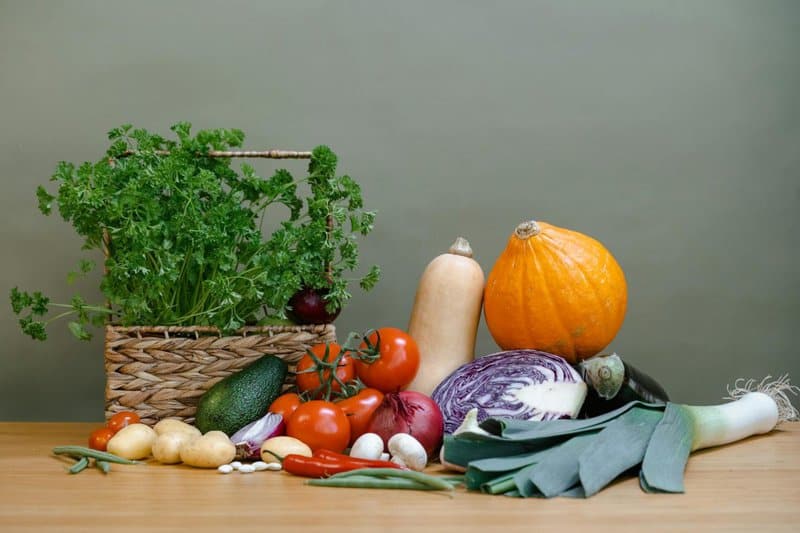
Mushrooms are unique in the vegetable world, offering a combination of nutrients rarely found in other plant foods. One of their most important components is beta-glucans, a type of soluble fiber known for its ability to lower cholesterol and support balanced blood sugar levels. By helping to reduce cholesterol absorption in the digestive tract, beta-glucans promote cleaner arteries and healthier blood flow.
Another remarkable nutrient in mushrooms is ergothioneine, a powerful antioxidant and anti-inflammatory compound. Ergothioneine helps protect blood vessels from oxidative stress and inflammation, which are major contributors to arterial aging and cardiovascular disease. This compound also supports the immune system, adding another layer of defense for overall wellness.
Compared to many other vegetables, mushrooms provide a distinct combination of heart and immune-supportive nutrients. Regular consumption has been linked to better cholesterol management, reduced inflammation, and improved vascular function.
Sauté, grill, or add mushrooms to soups and salads for a savory, heart-healthy enhancement to your meals.
31. Fennel
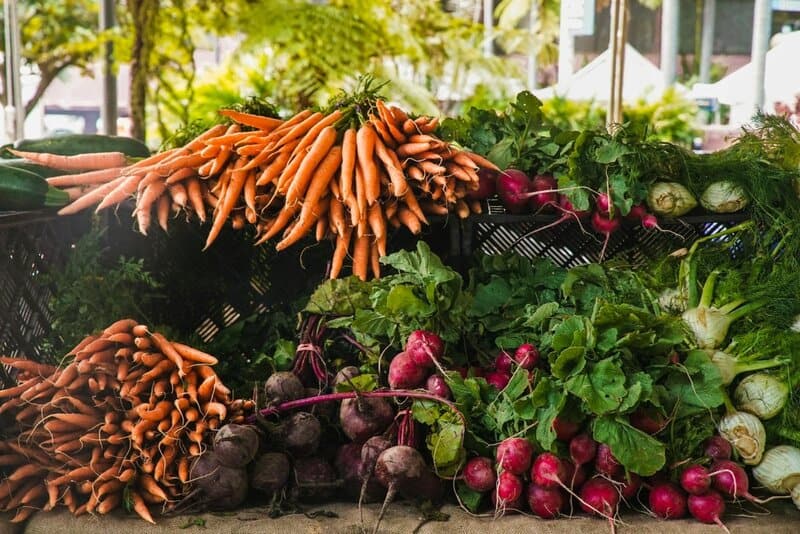
Fennel is a crisp, aromatic vegetable that brings a distinctive licorice flavor and an impressive array of health benefits to your kitchen. One of the most notable nutrients in fennel is potassium, which plays a vital role in regulating blood pressure by relaxing the walls of blood vessels and helping counteract the effects of sodium. This can lead to improved circulation and a reduced risk of hypertension.
Fennel is also a rich source of fiber, which aids in lowering cholesterol by binding to it in the digestive tract and facilitating its removal from the body. This action supports clear arteries and lowers the risk of cardiovascular disease. In addition, fennel contains an array of phytonutrients, including flavonoids and volatile oils, which have been shown to reduce inflammation and provide antioxidant protection to blood vessels.
The combined effects of potassium, fiber, and phytonutrients make fennel a particularly effective vegetable for promoting arterial flexibility and overall vascular health.
Enjoy fennel raw in salads, roasted, or added to soups for a flavorful and heart-smart addition to your meals.
32. Leeks

Leeks are a mild, sweet member of the allium family, closely related to garlic and onions. They share some of the same health-promoting compounds, most notably allicin. Allicin is renowned for its ability to support arterial health by promoting vasodilation—relaxing blood vessel walls and helping to lower blood pressure naturally.
Leeks are also an excellent source of kaempferol, a powerful antioxidant flavonoid with proven anti-inflammatory properties. Kaempferol protects the delicate lining of blood vessels from inflammation and oxidative damage, reducing the risk of arterial stiffness and plaque buildup.
In addition, leeks offer prebiotic fiber, which feeds beneficial gut bacteria. A healthy gut microbiome is now recognized as an important factor in cardiovascular health, as it helps regulate inflammation and supports efficient cholesterol metabolism.
Include leeks in soups, stews, or sautés to enjoy their subtly sweet flavor and their comprehensive benefits for blood pressure and vascular health.
33. Mustard Greens

Mustard greens are a spicy, nutrient-rich addition to any heart-healthy menu. One of their most impressive qualities is their exceptionally high vitamin K content, a nutrient vital for maintaining healthy blood clotting and preventing the calcification of arteries. By keeping calcium deposits from forming in blood vessels, vitamin K helps preserve arterial flexibility and function.
These leafy greens are also packed with potent antioxidants such as vitamin C, beta-carotene, and flavonoids. These compounds defend the arterial lining against oxidative stress and inflammation, which are key contributors to the development of arterial plaque and cardiovascular disease. The antioxidants in mustard greens work in harmony to neutralize harmful free radicals and keep your blood vessels resilient.
Additionally, mustard greens are a good source of fiber, which aids in cholesterol management and helps keep arteries clear. The combination of fiber and antioxidants makes these greens particularly effective at protecting the delicate endothelial layer inside blood vessels.
Enjoy mustard greens steamed, sautéed, or raw in salads for a flavorful and protective boost to your cardiovascular health.
34. Dandelion Greens

Dandelion greens are often overlooked in favor of more familiar leafy vegetables, but their nutritional profile makes them a standout for heart health. Rich in potassium, dandelion greens help counteract the effects of sodium and promote relaxed, flexible blood vessels—two vital factors in maintaining healthy blood pressure. Potassium’s presence supports the body’s natural ability to keep blood pressure in check and reduce the risk of hypertension.
Dandelion greens also supply a wealth of antioxidants, including vitamin C, beta-carotene, and polyphenols. These compounds help protect the arterial walls from oxidative stress and inflammation, key contributors to arterial stiffness and cardiovascular disease.
A unique benefit of dandelion greens is their gentle diuretic effect. By encouraging the body to eliminate excess fluid and sodium, dandelion greens help reduce blood volume and pressure, further supporting cardiovascular health.
Enjoy dandelion greens raw in salads, lightly sautéed, or blended into smoothies for a distinctive, heart-friendly addition to your meals.
35. Seaweed

Seaweed is a unique super-vegetable from the ocean, renowned for its exceptional nutrient content and heart-protective properties. One of its most valuable minerals is iodine, which supports healthy thyroid function and metabolic balance—both crucial for overall cardiovascular health. In addition, seaweed is a rich source of potassium, which aids in regulating blood pressure by relaxing blood vessel walls and counteracting sodium’s effects.
Seaweed’s alginates—natural fibers unique to marine plants—are particularly effective at binding cholesterol in the digestive tract and promoting its elimination from the body. This process supports lower cholesterol levels and helps keep arteries clean and free from plaque buildup. The combination of alginates, antioxidants, and minerals makes seaweed a powerful ally for arterial cleansing and cholesterol management.
Regular consumption of seaweed has been linked to healthier blood pressure, improved cholesterol profiles, and reduced inflammation throughout the cardiovascular system.
Enjoy seaweed in salads, soups, or as a sushi wrap to infuse your diet with ocean-powered cardiovascular benefits.
36. Zucchini

Zucchini is a mild, versatile squash that offers a gentle yet effective approach to supporting cardiovascular health. One of its main benefits comes from its significant fiber content, which helps lower cholesterol by binding to it in the digestive tract and aiding in its removal from the body. This supports clear arteries and smooth circulation, reducing the risk of plaque buildup.
Zucchini is also a good source of potassium, a mineral that assists in relaxing blood vessel walls and balancing sodium levels—both crucial for maintaining healthy blood pressure. Its high water content further contributes to hydration and optimal blood flow.
In addition, zucchini supplies a range of antioxidants, including vitamin C and carotenoids, which provide protection to the arterial lining from oxidative stress and inflammation. This gentle antioxidant action helps keep arteries supple and resilient against daily wear and tear.
Enjoy zucchini grilled, sautéed, spiralized, or baked into dishes to reap its heart-friendly benefits with ease.
37. Peas
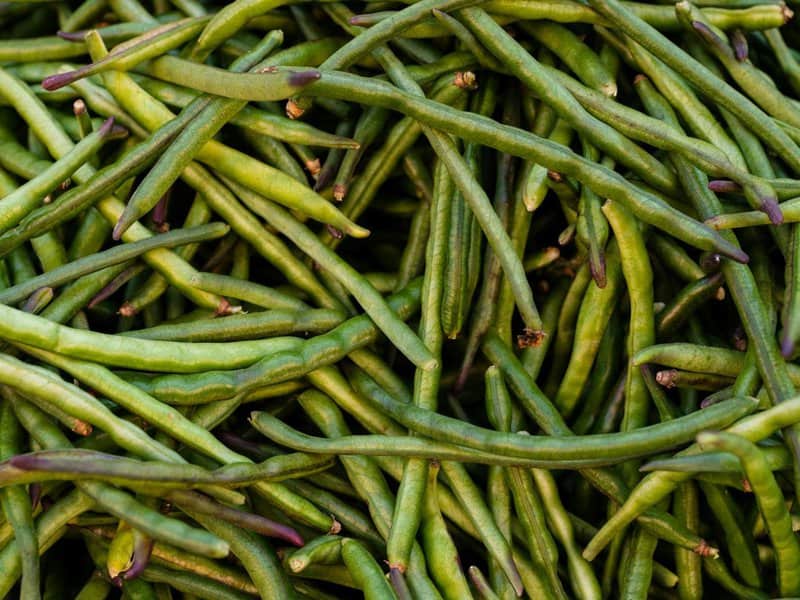
Peas, whether fresh, frozen, or snap, are a surprisingly powerful choice for cardiovascular health. One of their top features is their abundance of soluble fiber, which plays a significant role in lowering cholesterol by binding with it in the digestive system and promoting its removal. This helps keep arteries clear and reduces the likelihood of plaque formation.
In addition to fiber, peas are a rich source of plant protein, offering a filling and heart-healthy alternative to animal-based proteins. This plant protein supports muscle repair—including the heart muscle—while helping to maintain a lean, healthy body composition.
Peas are also packed with vitamin C, an antioxidant that protects the delicate lining of blood vessels from oxidative damage and inflammation. The combined effects of fiber, protein, and antioxidants enhance arterial elasticity, making it easier for blood to flow smoothly and reducing strain on the heart.
Add peas to salads, soups, or stir-fries for a sweet, nourishing boost to your daily heart health.
38. Cucumber

Cucumber is often prized for its refreshing crunch, but its benefits for arterial health run deeper than taste alone. Composed of over 95% water, cucumber is an exceptional hydrating food, which helps maintain optimal blood volume and promote healthy circulation. Its high water content also gives cucumber a mild diuretic effect, gently encouraging the body to flush out excess sodium and fluid—both of which are important for supporting healthy blood pressure.
Cucumber is also a source of potassium, a mineral that helps relax blood vessel walls and balance the effects of sodium in the body. This supports smoother blood flow and reduces the risk of hypertension. Another unique nutrient in cucumber is silica, a trace mineral that aids in maintaining the elasticity of blood vessels, promoting long-term arterial resilience.
The combination of hydration, potassium, and silica makes cucumber a subtle yet effective vegetable for gently cleansing arteries and supporting overall cardiovascular wellness.
Enjoy cucumber raw in salads, infused in water, or as a crisp snack to give your heart and arteries a daily dose of gentle care.
39. Garlic Scapes

Garlic scapes, the curly green shoots that emerge from garlic bulbs, are a lesser-known but highly potent addition to a heart-healthy diet. Like garlic bulbs, scapes contain allicin—the powerful sulfur compound that supports vasodilation, helps lower blood pressure, and offers robust antimicrobial and anti-inflammatory effects. Allicin in garlic scapes is released when they are chopped or crushed, delivering similar cardiovascular benefits to those associated with mature garlic cloves.
Garlic scapes are also rich in unique phytonutrients, including a variety of flavonoids and vitamins such as vitamin C and vitamin A. These nutrients work together to protect the inner lining of arteries from oxidative stress and inflammation, giving your cardiovascular system comprehensive support.
While garlic bulbs tend to have a more concentrated allicin content, garlic scapes provide a milder, fresher flavor and can be enjoyed raw or lightly cooked. Their nutrient profile, combined with their versatility, makes them an excellent seasonal alternative for those looking to diversify their artery-friendly foods.
Use garlic scapes in pestos, stir-fries, or salads to bring a gentle, heart-boosting touch to your meals.
40. Endive
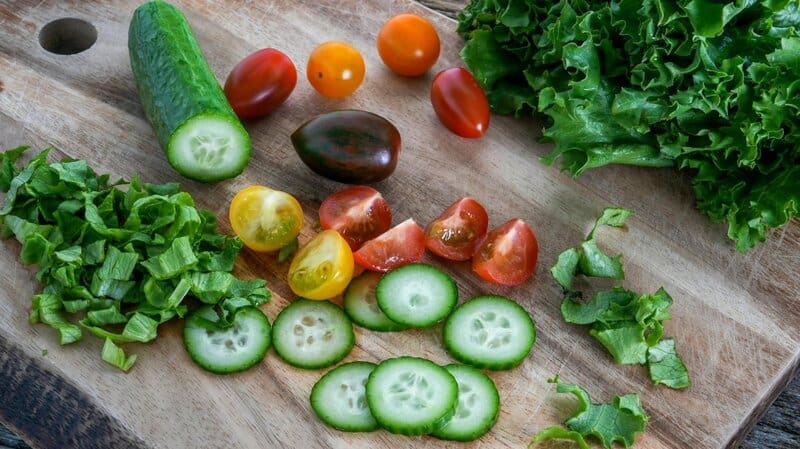
Endive is a crisp, slightly bitter leafy vegetable that delivers a powerful blend of nutrients for cardiovascular wellness. One of its most notable components is inulin, a unique prebiotic fiber that supports healthy digestion and helps lower cholesterol. Inulin binds to cholesterol in the digestive tract, aiding its removal from the body and helping to keep arteries free of plaque.
Endive is also a good source of potassium, which plays an important role in relaxing blood vessel walls and balancing sodium—both of which are crucial for maintaining healthy blood pressure. The presence of potassium in endive offers gentle, natural support for those aiming to manage hypertension through diet.
In addition, endive contains a variety of antioxidants, including vitamin C and flavonoids, which help shield blood vessels from oxidative stress and inflammation. These compounds work together to protect the inner lining of arteries and support overall vascular health.
Add endive to salads, wraps, or use as a crunchy dipper to enjoy its heart-healthy benefits and unique flavor.
Bringing It All Together: A Heart-Healthy Plate
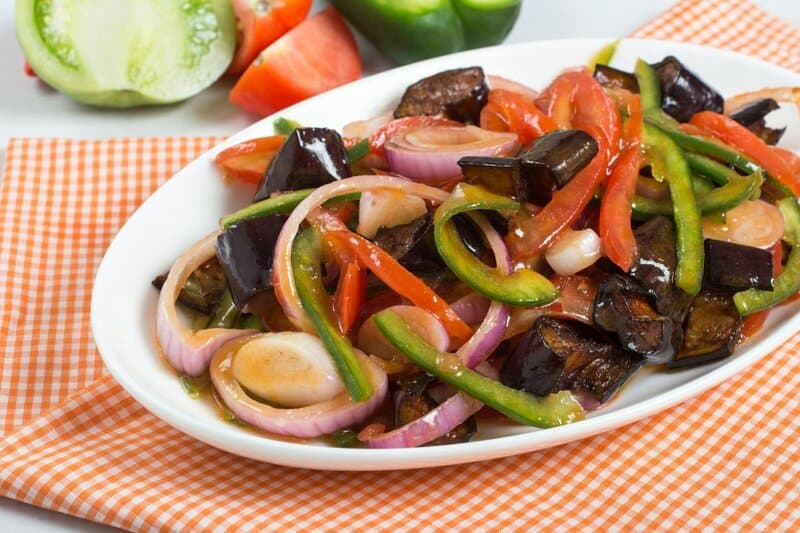
The journey through these super-vegetables reveals just how powerful nature’s bounty can be for your heart. By embracing variety and making these vegetables a daily habit, you harness a broad spectrum of nutrients—fiber, antioxidants, minerals, and phytonutrients—that work in synergy to lower blood pressure and purify your arteries.
A colorful, plant-rich plate doesn’t just offer individual benefits; it creates a dynamic, heart-protective environment within your body. Mix and match these super-vegetables to keep meals exciting and your cardiovascular system thriving.
Disclaimer

This article is for informational purposes only and does not constitute medical advice. Please consult your healthcare professional before making dietary changes or addressing any health concerns.





